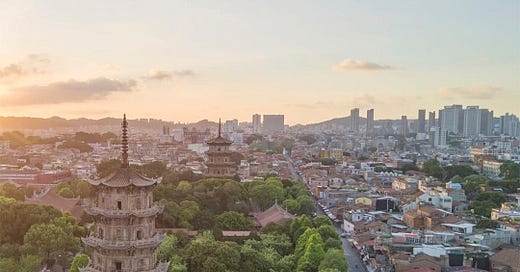Long Read: What History Tells Us About Geopolitical Shift and Its Economic Consequences
Economic hubs, growth drivers and prosperity may move to new locations, forming new networks of exchange
On July 25, 2021, UNESCO recognized Quanzhou as a World Heritage site
I was only able to attend university when the college entrance exam was reinstated following an 11-year suspension during the Cultural Revolution. Shortly after I graduated in 1982, Deng Xiaoping spoke several times about the defining features of the era, highlighting two key concepts: peace and development.
This had a profound impact on me because, for many years, the defining features had always been framed as “war and revolution.” This perspective stemmed from the Soviet model, where the outbreak of the First World War led to the Russian Revolution. The logic behind it was that imperialism inherently led to war, and when war broke out, socialist revolutions could emerge in its weak spots. During the Soviet era, it was believed this logic would eventually apply worldwide, shaping discussions about the global trajectory around “war and revolution.”
Keep reading with a 7-day free trial
Subscribe to Caixin Global China Watch to keep reading this post and get 7 days of free access to the full post archives.




